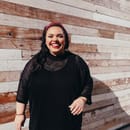When did owning a brand name become more important than our health? This is the exact question I asked myself when I first learned of the dangers of ‘fake’ makeup or counterfeit cosmetics. So, what is fake makeup, why is it hamrful, and why is it so appealing?
What is fake makeup?
Similar to a knockoff handbag, fake makeup is makeup made to imitate larger, popular makeup brand names. As the beauty industry grows larger, the risk of the fake makeup market grows. The most common names found in the fake makeup market are MAC, Urban Decay, Kylie Cosmetics, and Anastasia Beverly Hills. These off-brand cosmetics are often found online, or with street vendors in places such as New York City, Hong Kong, and, the most popular, Santee Alley in Los Angeles. A surprising estimated 2.5% of the world’s trade is made up of fake goods, and a large percentage of this is counterfeit cosmetics. This seems like a small amount but the risks to health and business from this trade is greater than it appears.
What makes counterfeit or fake makeup so harmful?
The buying and selling of counterfeit cosmetics can be dangerous for many reasons. The first reason is consumer health. Fake cosmetics may contain lead, mercury, cyanide, arsenic and paint-stripper which can have toxic effects on vital organs, and can even be deadly. The fake beauty industry can also cause many other issues such as infections, acne, psoriasis, rashes, and eye infections. According to the LAPD and Refinery29, some of these fakes even contained traces of human and animal waste. “Those feces will just basically somehow get mixed into the product they’re manufacturing in their garage or in their bathroom — wherever they’re manufacturing this stuff,” said Rick Ishtani of the LAPD.
So pretty scary stuff, but how do fake cosmetics hurt businesses? “Well in 2015 alone, there was about 2,000 seizures of counterfeit cosmetics and beauty products. It cost the industry about $75 million dollars — and that was just one fiscal year.” This hurts the businesses and companies that sell legitimate, authentic beauty products. As a makeup artist, I have seen counterfeit makeup enter the doors of my store as customers try to return the fake makeup they bought masked as the real thing so they can make back money. This can lead to confusion for these companies who might resell the returned item, posing a risk to an unknown consumer.
Why is it so popular?
Knock-off makeup attracts buyers because instead of purchasing a lipstick at $20, a customer can find the same named item as low at $4 a piece. A person who could not normally afford to stock up on name brand cosmetics can have the look of luxury at a fraction of the cost. This is also true for items, you might think are sold out. Going online to a third party you might discover that exclusive products are “available”. The internet and small street markets have made it possible to get your hands on items that might otherwise not be accessible.
The good news.
While the threat of harm to a person’s health can be scary, there is something being done about fake makeup. In 2018, The Los Angeles Police Department confirmed that it confinscated about $700,000 worth of knockoff makeup in the downtown L.A. Santee Alley shopping district. Also brands, such as Esteé Lauder and L’oréal, are cracking down and heading to the street markets and online vendors to conduct their own investigations. They are helping to remove the toxic fakes off the streets.
So is it worth it?
After reading the news on fake makeup, I don’t believe a brand name is worth any of the harm that can come from it. My advice is to buy makeup from trusted places such as department stores, makeup shops, or directly from the brand. There are many sources online that can help you distinguish whether you makeup is the real deal or not. The name on that tube of lipstick or bronzer is simply not worth it.



